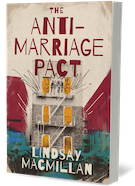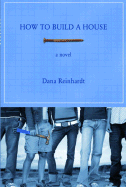Notes: 007's Next Mission in the U.S.; Store Moves
The Wall Street Journal has a briefing about the release May 28 of Devil May Care by Sebastian Faulks starring James Bond. The print run is 250,000, and Doubleday plans "a lavish marketing campaign."
Unlike other Bond novels written after the death of Ian Fleming, who would have turned 100 on pub date, Devil May Care is set during the Cold War, not in the present.
Bob Wietrak, v-p of merchandising at Barnes & Noble, which is ordering "a large quantity" of Devil May Care, told the Journal: "The downturn in the economy has prompted a demand for escapist fare."
---
The Bookshelf and the Blue Heron Coffeehouse, Winona, Minn., are moving in together and sharing space, as the two businesses had hoped to do earlier this year (Shelf Awareness, March 7, 2008), the Winona Daily News reported. Blue Heron had closed and is reopening on May 30. The Bookshelf is moving from its current space on May 24 to the new spot at 162 W. Second St.
Noting that "books and coffee are a formula that has worked in a lot of small towns," Bookshelf owner Chris Livingston said the arrangement was ideal because he didn't want to be "in the food business. I'm in the bookselling business."
In the new location, the Bookshelf will no longer sell textbooks and is adding used books to its mix.
---
With two weeks to go before vacating its home of 35 years, Kennebunk Book Port, Kennebunk, Me., needed a loan to make a move, but in these credit-stingy times, owners Ellen and Rich Chasse had trouble finding a bank willing to lend them any money. But at the last minute, the Ocean Community Bank provided the necessary funds, and the store has moved to Shopper's Village on busy Route 1, the Portsmouth Herald News reported.
In the new space, Kennebunk Book Port is stocking more teen and YA books and for the first time, graphic novels. In addition, the store has longer hours and added several part-time employees.
---
Crocodile Pie, the 19-year-old children's bookstore in Libertyville, Ill., is closing at the end of July, according to the Chicago Daily Herald.
Owner Kim White said that the store had survived the growth of online retailers, chain bookstores and non-bookstore retailers like Wal-Mart. "It's just time to do other things," she told the paper. "My kids are now out of college and I want to travel and be with them."
White would rather sell than close, but no one has expressed interest in purchasing the store yet.
---
Jane Austen's novels have found surprising new fans in the new, bestselling, violent video game Grand Theft Auto IV, according to this report from late night TV host Conan O'Brien, who wonders if attempts to tone down the game have gone too far.
---
Is book burning always a bad idea? One of the most notorious book
burnings in history occurred on May 10, 1933, when the Nazis publicly
burned thousands of books three months after Hitler took power. AbeBooks
has marked the 75th anniversary of this incident by interviewing three
authorities who offer a range of views:
Matt Fishburn, Australian rare bookseller and author of Burning Books:
"Most officially sanctioned fires are designed to control, and to
announce what they stand for and what will be accepted under their
rule. Burnings like those of the Nazis have something in common with
the early modern burning of books in Europe. They announced what would
be acceptable in future, and in the process shaped the new public
sphere. The book burnings are the symbol; the repressive legislation
that came in its wake was what enforced it."
Rebecca Knuth, author of Burning Books and Leveling Libraries: Extremist Violence and Cultural Destruction and Libricide: The Regime-Sponsored Destruction of Books and Libraries in the Twentieth Century:
"Because book burning is associated with barbarism and the
disintegration of civilization, it signals that things are out of
control and society is under threat. When specific books or categories
of books are targeted and destroyed, the individuals who identify with
those books know that they themselves, their group, and their beliefs
are under attack."
Shaun Bythell, owner of the Bookshop, Wigtown, Scotland, who staged a public book burning
in 2005. "I suppose I didn't feel strange burning them because it was
like cremating a corpse, rather than burning a living person. The books
were dead in as much as nobody would ever read them again. We used a
quotation from Rabbi Akiba Ben Joseph in our publicity material, which
was 'The paper burns, but the words fly away.'"






SHELFAWARENESS.0213.S4.DIFFICULTTOPICSWEBINAR.gif)





SHELFAWARENESS.0213.T3.DIFFICULTTOPICSWEBINAR.gif)


 Seventeen-year-old Harper Evans, who narrates this moving novel, worries that we are "ruining the planet." She thinks about this as she watches the landscape change through her window on an airplane that carries her from her native Los Angeles to Bailey, Tenn., where a tornado has demolished an entire town and where she will build a house for a family left homeless by the catastrophe. Reinhardt (A Brief Chapter in My Impossible Life) smoothly moves between the outer events Harper observes and her attempts to make sense of the personal challenges she faces ("I know a thing or two about people whose homes have been destroyed"). Gradually we learn that Harper's mother died when she was two, that her father married Jane, a woman who became a loving parent to her at age six, and that Harper also gained a sister and best friend, Tess, in this newfound family. But now Jane and her father are separated, driving a wedge between Harper and Tess. In her confusion, Harper turns to Gabriel, her closest male friend, and their friendship crosses into a sexual-platonic gray area that they never discuss. These flashbacks are triggered by moments in the here and now, as Harper and four others from the Homes from the Heart Summer Program for Teens build a foundation for the house, erect walls, paint them and shingle the roof. And there's one other teen, Teddy Wright. They are building this house for him, for his parents and his twin nine-year-old sisters, who have come to the aid of every other family that stayed in Bailey. The structure of the novel (organized into the major steps involved in erecting a house) at times feels constricting, but the story of Harper's evolution throughout one pivotal summer is fluid and well developed. The author effortlessly integrates Harper's sense of wonder about the earth at key moments; in the leadup to her first romantic encounter with Teddy at dusk on the Fourth of July, for instance, she notices, "At the edges, the sky is the color of a kitten's tongue." The heroine's growing trust in Teddy draws a striking contrast between the somewhat random physical contact she experienced with Gabriel versus sex with Teddy as a mindful expression of companionship and trust. Reinhardt raises provocative questions about the nature of commitment between human beings and the earth--and one another.--
Seventeen-year-old Harper Evans, who narrates this moving novel, worries that we are "ruining the planet." She thinks about this as she watches the landscape change through her window on an airplane that carries her from her native Los Angeles to Bailey, Tenn., where a tornado has demolished an entire town and where she will build a house for a family left homeless by the catastrophe. Reinhardt (A Brief Chapter in My Impossible Life) smoothly moves between the outer events Harper observes and her attempts to make sense of the personal challenges she faces ("I know a thing or two about people whose homes have been destroyed"). Gradually we learn that Harper's mother died when she was two, that her father married Jane, a woman who became a loving parent to her at age six, and that Harper also gained a sister and best friend, Tess, in this newfound family. But now Jane and her father are separated, driving a wedge between Harper and Tess. In her confusion, Harper turns to Gabriel, her closest male friend, and their friendship crosses into a sexual-platonic gray area that they never discuss. These flashbacks are triggered by moments in the here and now, as Harper and four others from the Homes from the Heart Summer Program for Teens build a foundation for the house, erect walls, paint them and shingle the roof. And there's one other teen, Teddy Wright. They are building this house for him, for his parents and his twin nine-year-old sisters, who have come to the aid of every other family that stayed in Bailey. The structure of the novel (organized into the major steps involved in erecting a house) at times feels constricting, but the story of Harper's evolution throughout one pivotal summer is fluid and well developed. The author effortlessly integrates Harper's sense of wonder about the earth at key moments; in the leadup to her first romantic encounter with Teddy at dusk on the Fourth of July, for instance, she notices, "At the edges, the sky is the color of a kitten's tongue." The heroine's growing trust in Teddy draws a striking contrast between the somewhat random physical contact she experienced with Gabriel versus sex with Teddy as a mindful expression of companionship and trust. Reinhardt raises provocative questions about the nature of commitment between human beings and the earth--and one another.--